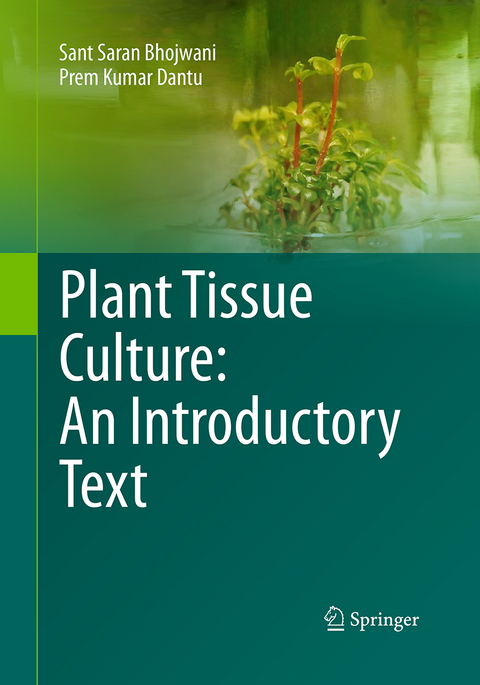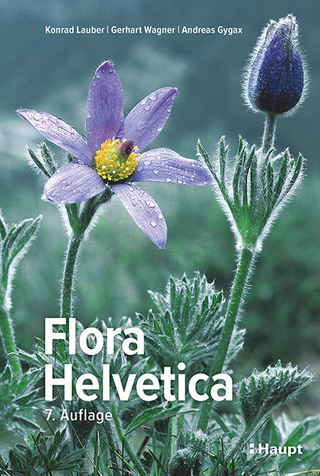
Plant Tissue Culture: An Introductory Text
Springer, India, Private Ltd (Verlag)
978-81-322-2862-2 (ISBN)
Dr S.S. Bhojwani has over 40 years of experience of research and teaching Plant Biotechnology to undergraduate and postgraduate students. After 33 years of service at the Department of Botany, University of Delhi, in 2002 Professor Bhojwani moved to Agra as the Director of the Dayalbagh Educational Institute (Deemed University). He continues as Emeritus Professor of Botany with the DEI. Prof. Bhojwani has published over 90 original research papers in reputed international journals and guided 17 doctoral and 11 M.Phil. thesis and authored/edited 7 books on Plant Tissue Culture and the Embryology of Angiosperms, some of which have been translated into Japanese and Korean languages. Prof. Bhojwani has been a Member of Organizing Committee, Session Chairman, Organizer of Workshop, and Invited Speaker for several National and International Conferences held in India and overseas. He has been the recipient of many international Fellowships for advanced research in Canada, Japan, New Zealand, Germany, South Korea, and U.K. He has been on the editorial boards of the journals Scientia Horticulurae, Plant Biotechnology Reports and Plant Tissue Culture. Dr. P.K. Dantu has 20 years of research and teaching experience in the field of Plant Biotechnology. After completing Ph.D. in 1992, he joined IARI and worked on genetic modification of Lathyrus sativus to produce OX-DAPRO-free lines. He was instrumental in setting up a commercial plant tissue culture laboratory with a production capacity of half-a-million horticultural species. In 1997, Dr Dantu returned to academics and after a brief stint at University of Delhi, in 2004 he joined the Department of Botany, DEI as Associate Professor and was promoted to Professor in 2012. Prof. Dantu is currently working on various biotechnological aspects of medicinal plants. He has guided 5 doctoral and 4 M.Phil. theses and 10 M.Sc. dissertations. He has published 20 research papers and contributed 6 book chapters. He participated in several national and international conferences and was invited as Resource person to the International conference on “Biodiversity Conservation and Education for Sustainable Development: Learning to Conserve Biodiversity in a Rapidly Developing World” held during CBD COP-11 in Hyderabad.
Preface.- 1. Historical Sketch.- 2. General Requirements and Techniques.-3. Culture Media.- 4.Tissue and Cell Culture.- 5.Cytodifferentiation. 6.Cellular Totipotency.- 7.Somatic Embryogenesis.- 8.Androgenesis.- 9.Gynogenesis.- 10. Triploid Production.- 11. Zygotic Embryo Culture.- 12. Somaclonal Variation.- 13. In vitro Fertilization.- 14. Parasexual Hybridization.- 15. Genetic Engineering.- 16. Production of Virus-free Plants.- 17. Micropropagation.- 18. Production of Industrial Phytochemicals.- 19. Conservation of Biodiversity.- Subject Index.
| Erscheint lt. Verlag | 23.8.2016 |
|---|---|
| Zusatzinfo | XVII, 309 p. |
| Verlagsort | New Delhi |
| Sprache | englisch |
| Maße | 178 x 254 mm |
| Themenwelt | Naturwissenschaften ► Biologie ► Botanik |
| Naturwissenschaften ► Biologie ► Genetik / Molekularbiologie | |
| Naturwissenschaften ► Biologie ► Zellbiologie | |
| Technik ► Umwelttechnik / Biotechnologie | |
| Weitere Fachgebiete ► Land- / Forstwirtschaft / Fischerei | |
| Schlagworte | Cellular Totipoptency • Cytodifferentiation • Plant Biotechnology • Plant growth and development • Plant Morphogenesis |
| ISBN-10 | 81-322-2862-6 / 8132228626 |
| ISBN-13 | 978-81-322-2862-2 / 9788132228622 |
| Zustand | Neuware |
| Haben Sie eine Frage zum Produkt? |
aus dem Bereich


